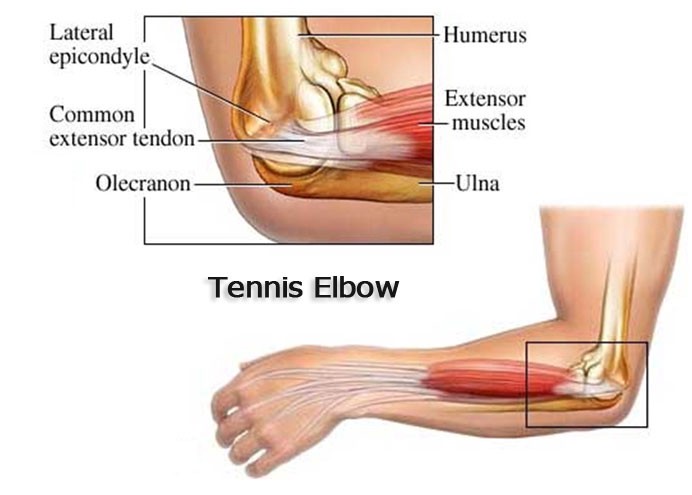Elbow Surgery in Portugal
Search and Compare the Best Clinics and Doctors at the Lowest Prices for Elbow Surgery in Portugal

Find the best clinics for Elbow Surgery in Portugal
No clinics available
Russian Federation offers the best prices Worldwide
Price: $ 553

- Home
- Portugal
WHY US?
At Medijump, we're making medical easy. You can search, compare, discuss, and book your medical all in one place. We open the door to the best medical providers worldwide, saving you time and energy along the way, and it's all for FREE, no hidden fees, and no price markups guaranteed. So what are you waiting for?

Free

Best Price

Widest Selection

Risk-Free
What you need to know about Elbow Surgery in Portugal

Elbow surgery is a surgical procedure to treat an injured elbow, such as damage in the tendons that connect your muscles to the elbow bone. The procedure is required when other treatment options cannot improve the symptoms and affect your ability to perform a simple task, such as lifting a cup.
What Does the Procedure Involve?
There are two types of elbow surgery: open surgery and arthroscopic surgery, both can be performed under general or local anesthetic. In open surgery, your surgeon makes a single incision above the bone on your elbow side and removes the damaged part of the tendon. In arthroscopic surgery, your surgeon creates small incisions in the skin over the elbow to insert tiny instruments and a camera, then, the damaged parts of your tendon are removed using these tiny instruments. Depending on your condition, elbow surgery may also involve replacing your elbow joint.
How Long Should I Stay in Portugal for a Elbow Surgery Procedure?
Elbow surgery is usually performed as an outpatient procedure, which means you can leave the hospital on the same day. Nevertheless, you will need to stay in Portugal for 5 to 7 days for initial recovery, follow-up hospital checkups, and removal of stitches.
What's the Recovery Time for Elbow Surgery Procedures in Portugal?
The total recovery time before you are allowed to exercise or play sports can be as long as four to six months. However, you should be able to return to work and some light activities within six to twelve weeks.
What sort of Aftercare is Required for Elbow Surgery Procedures in Portugal?
There are usually no dietary restrictions, but you should eat a healthy and balanced diet. You will need to do strengthening exercises, but make sure to do it with a physical therapist that will show you the right exercises to strengthen your elbow. After you are fully recovered, always be careful not to injure your elbow again and your doctor may recommend exercises to strengthen your shoulder so you can take the pressure off the elbow.
What's the Success Rate of Elbow Surgery Procedures in Portugal?
Approximately 80% to 90% of people who have elbow surgery said that their pain was reduced and their movement improved. Elbow surgery has possible side effects and risks, including infection, damage to nerves in the elbow, damage to blood vessels in the elbow, reduced strength, reduced flexibility, severe pain, swelling that does not go away, redness, numbness, fever, and tingling sensations in your hands or fingers.
Are there Alternatives to Elbow Surgery Procedures in Portugal?
If you do not want to undergo surgery, you can usually treat it with pain relievers and rest. Your doctor may also recommend an elbow brace and a few adjustments to your daily activities. However, for severe cases, you may want to consider elbow surgery.
What Should You Expect Before and After the Procedure
Injury in your elbow can be very painful and limit your movements. After elbow surgery, you will be able to move your elbow easily and all pain will be reduced. As a result, you can continue to enjoy sports and other activities.
Whilst the information presented here has been accurately sourced and verified by a medical professional for its accuracy, it is still advised to consult with your doctor before pursuing a medical treatment at one of the listed medical providers
No Time?
Tell us what you're looking for and we'll reachout to the top clinics all at once
Enquire Now

Popular Procedures in Portugal
Prices Start From $964

Prices Start From $218

Prices Start From $218

Prices Start From $2,050

Recommended Medical Centers in Portugal for procedures similar to Elbow Surgery

- Interpreter services
- Translation service
- Religious facilities
- Medical records transfer
- Medical travel insurance
- Health insurance coordination
- TV in the room
- Safe in the room
- Phone in the room
- Private rooms for patients available

- Interpreter services
- Translation service
- Religious facilities
- Medical records transfer
- Medical travel insurance
- Health insurance coordination
- TV in the room
- Safe in the room
- Phone in the room
- Private rooms for patients available

- Interpreter services
- Translation service
- Religious facilities
- Medical records transfer
- Medical travel insurance
- Health insurance coordination
- TV in the room
- Safe in the room
- Phone in the room
- Private rooms for patients available

- Interpreter services
- Translation service
- Religious facilities
- Medical records transfer
- Medical travel insurance
- Health insurance coordination
- TV in the room
- Safe in the room
- Phone in the room
- Private rooms for patients available

- Interpreter services
- Translation service
- Religious facilities
- Medical records transfer
- Medical travel insurance
- Health insurance coordination
- TV in the room
- Safe in the room
- Phone in the room
- Private rooms for patients available

- Interpreter services
- Translation service
- Religious facilities
- Medical records transfer
- Medical travel insurance
- Health insurance coordination
- TV in the room
- Safe in the room
- Phone in the room
- Private rooms for patients available

- Interpreter services
- Translation service
- Religious facilities
- Medical records transfer
- Medical travel insurance
- Health insurance coordination
- TV in the room
- Safe in the room
- Phone in the room
- Private rooms for patients available

- Interpreter services
- Translation service
- Religious facilities
- Medical records transfer
- Medical travel insurance
- Health insurance coordination
- TV in the room
- Safe in the room
- Phone in the room
- Private rooms for patients available

- Interpreter services
- Translation service
- Religious facilities
- Medical records transfer
- Medical travel insurance
- Health insurance coordination
- TV in the room
- Safe in the room
- Phone in the room
- Private rooms for patients available
Elbow Surgery in and around Portugal
Introduction
Portugal is a country located in southwestern Europe. It’s one of the oldest nation-states of Europe and the world. Its territory had been continuously invaded, settled, and fought over since prehistoric times. Today, the country has become a major tourist destination, with its architecturally stunning cities, cobblestone villages, medieval castles, great food, stunning beaches, and incredible weather. Besides its beauty, Portugal is also attracting people from all around the world for its healthcare. The country offers a combination of state-of-the-art private medical centers, with spotless facilities and private rooms, a wide range of procedures, with very short waiting lists, as well as highly trained patient-oriented medical teams who are fluent in different languages. The physicians in this country have been trained by high standard medical schools, where just top and talented students are allowed to attend.
Popular Cities and Regions in Portugal
Lisbon is the capital and the largest city in Portugal. This city is filled with friendly people, history, mystique, and amazing food. Explore its many beautiful churches, listen to Fado, take a trip to the Castle of St. Jorge, see Sintra, and have some fun in one of its nightclubs. Another popular destination is Batalha, which is home to the UNESCO-listed Batalha Monastery. The monastery was build from 1386 to 1517 and is known as the greatest Gothic masterpieces in Europe. Those who want to party or soak up the sun should visit Lagos, while those who love to wander around and visit museums should visit Porto. Both of these cities are popular and fascinating.
Transport in Portugal
International tourists usually arrive at Lisbon Airport. It is a hub for low-cost airlines EasyJet and Ryanair, and it serves flights to numerous cities around the world. To get around Portugal, trains and buses are very efficient. While trains are often cheaper, buses are usually quicker. Taxis are available in almost every city and are relatively cheap.
Visas in Portugal
Since Portugal is part of the Schengen Area, citizens of 62 countries, including the US, Australia, the UAE, and Canada, are allowed to visit without a visa for up to 90 days. Citizens of most other countries are required to obtain a Schengen visa to visit the country.
Weather in Portugal
From March to May it is spring and the weather is pleasant but there will likely be some heavy rain. Summer, is from June to mid-September, can be scorching hot with temperatures rising to mid 30oC. Autumn, starts from mid-September to December and it brings colder temperatures but and an increased chance of rain. Winter can get quite cold and the days are shorter and always expect rain and storms during this season.
Additional Info
- Local Currency: The euro is the official currency. 1 EUR is equivalent to 1.08 USD.
- Money & Payments: ATMs are widely available, except in small villages. Credit cards are often accepted at midrange and high-end establishments. Tipping is usually expected at hotels and restaurants.
- Local Language: The official language is Portuguese. However, English, French, and Spanish are widely spoken in the country.
- Local Culture and Religion: Christianity is the major religion of the country. Other religions are practiced by a small portion of the population.
- Public Holidays: Portugal Day, Restoration of Independence, and Christmas Day are some of the public holidays celebrated in Portugal.
Popular Searches
- Plastic Surgery in Thailand
- Dental Implants in Thailand
- Hair Transplant in Thailand
- Breast Augmentation Thailand
- Gastric Sleeve in Thailand
- Gender Reassignment Surgery in Thailand
- Laser Hair Removal in Bangkok
- Botox in Bangkok
- Dermatology in Bangkok
- Breast Augmentation in Bangkok
- Coolsculpting in Bangkok
- Veneers in Turkey
- Hair Transplant in Turkey
- Rhinoplasty in Turkey
- Stem Cell Therapy in Mexico
- Rhinoplasty in Mexico
- Liposuction in Mexico
- Coolsculpting in Tijuana
- Rhinoplasty in Korea
- Scar Removal in Korea
- Gastric Sleeve in Turkey
- Bone Marrow Transplant in India
- Invisalign in Malaysia
- Plastic Surgery in the Dominican Republic
- Tummy Tuck in the Dominican Republic
- Plastic and Cosmetic Surgery in Poland
- Rhinoplasty in Poland
- Hair Implant in Poland
- Dental Implants in Poland
- IVF in Turkey